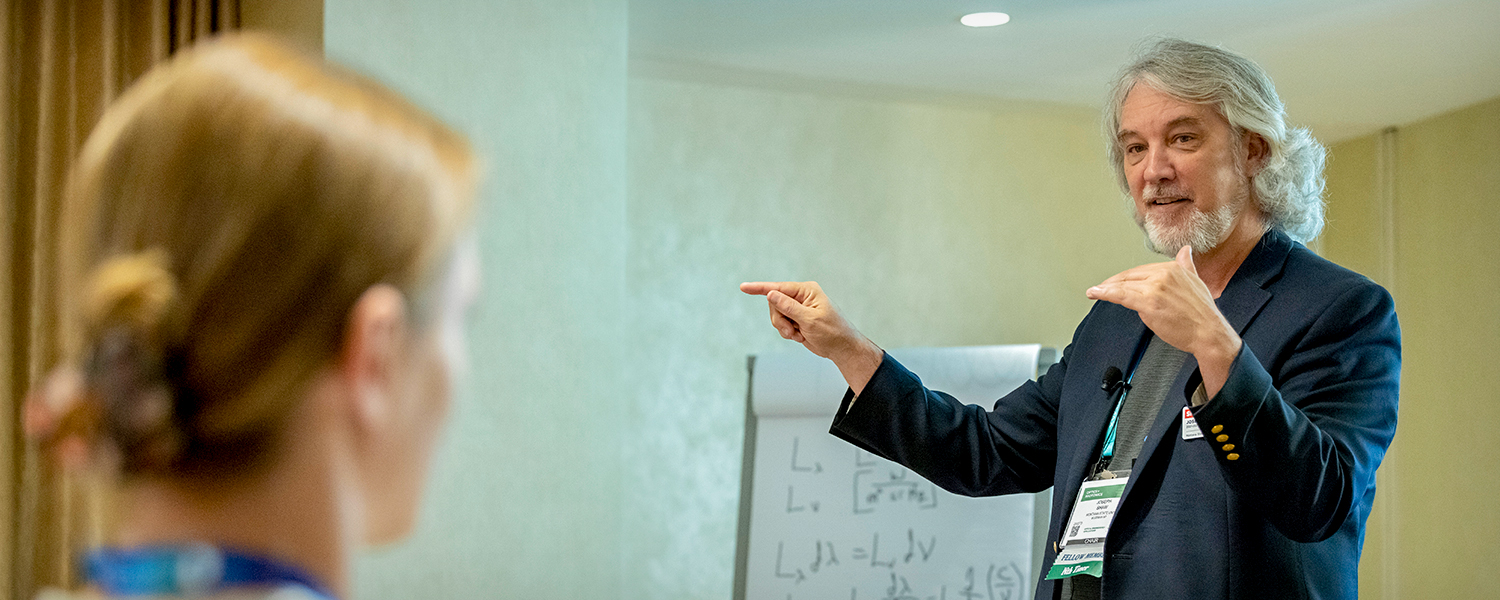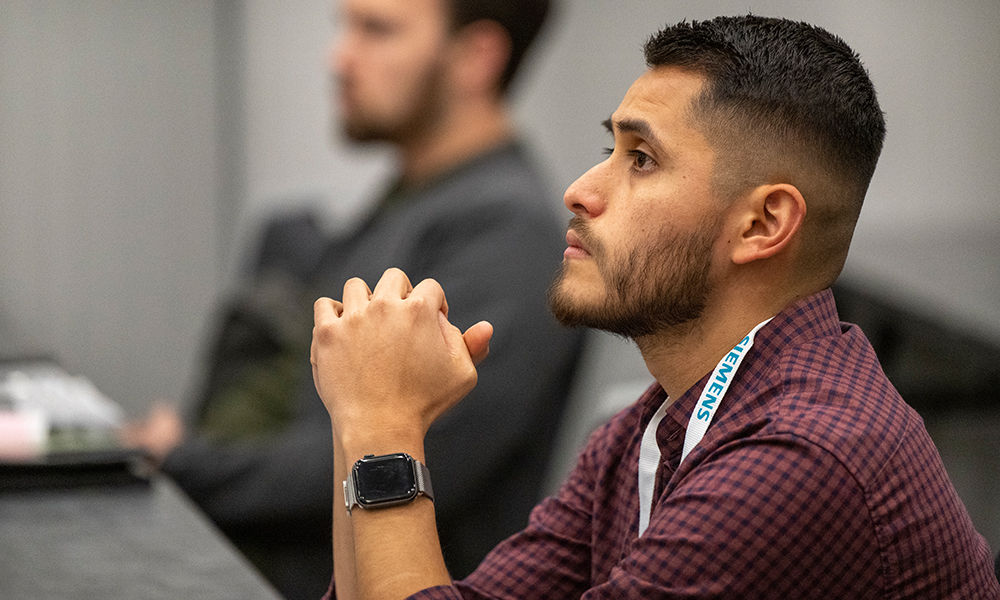
SPIE will offer short courses at Photonics West. Join us onsite for in-person training, meet the instructor, and connect with your peers.
Created by experts, SPIE courses are designed to expand professional knowledge and skills. Topics include optomechanics, optical design, AR VR MR, deep learning, quantum, ultrafast lasers, and more. Full course program to come when registration opens in October 2024. Plan for your training budgets now!
Jump to: Benefits | Member discounts | Frequently asked questions
Email the required course proposal and your CV, including teaching experience, and / or any questions to courses@spie.org. Review our Instructor Guidelines for more information about timelines, course materials and requirements, and compensation. Proposals for SPIE Photonics West are due 1 August 2024.
There is more than one reason to take a course.

SPIE Members receive discounts on courses, which are applied at the time of registration. SPIE Student Members receive even greater discounts on courses, particularly during early registration.
For more information contact courses@spie.org.
Not an SPIE Member? Purchase Membership with your registration and receive your discount right away.
• Check in at the Registration Desk to get your badge and the volunteer will verify any courses you signed up for.
• Go to the Course Desk.*
• Have your badge scanned again and get your course materials and the classroom location.**
* The Course Desk is usually in the same location as the Registration Desk. If not, ask the volunteer who checked you in – they will know!
** Your course materials serve as your ticket to enter the classroom. Do not go to the classroom without picking up your course materials first. As such, be sure to do this step at least 30 minutes before your first course starts to get to the classroom on time.
Course registrations include a printed copy of the course materials. Some courses may include textbooks. Check the course descriptions for more information.
Yes, most people collect materials for multiple courses at the same time.
Classroom locations are provided on site when you collect your course materials. Locations vary and courses may be held in a different location than the conferences.
We recommend coming to the Course Desk at least 30 minutes prior to the start of the course to give yourself time to collect your materials and walk to your classroom.
As a courtesy to the instructor and other attendees, please arrive at the classroom at least five minutes prior to, but no later than the posted start time.
Course materials can be picked up any time before the scheduled date and time of your course, but it is a good idea to pick them up at least 30 minutes prior. Remember, you will not be allowed access to your classroom without them.
Yes, you may register on site for courses that still have open seats. However, we recommend registering for courses early to ensure you get a seat in the course you want. Courses do fill up, so a seat may not be available. Also, courses without sufficient registration three weeks prior to the event are subject to cancellation.
No, there are no waitlists for courses. Be sure to register early to secure your seat in the course you want.
Sometimes, a course instructor becomes unavailable and needs to cancel their course. Or, if there is an insufficient number of registrations three weeks prior to the conference, SPIE reserves the right to cancel a course.
In either event, you will be contacted by SPIE staff via email.
You may transfer your registration to a different course or ask for a refund before registration fees increase.
If you cancel you will receive a full refund for the course, less a $75 USD service charge for processing the refund, if the request is made before this date.
PLEASE NOTE: All transfer requests and registration fees will be forfeited after this date.
No, the in-person courses will not be recorded. You must take the course on site at the specified time.
No, there is no option to attend an in-person course virtually. The course is not recorded so registrants will not receive a recording after the event. You must take the course on site at the specified time.
SPIE has a broad portfolio of online courses. These courses are versions of our live courses, taught by the same experts, but accessible at a time and place that work for you. But not all of our courses at conferences are available in this format.
To see the current list of online offerings and to get more information, visit SPIE Online Courses.
Yes, SPIE awards digital badges and certificates to participants who attend in-person courses at events. Certificates will be sent via email to attendees approximately eight weeks after the conference has ended.
To receive these digital credentials, you must:
More information about digital credentials can be found at SPIE Badges and Certificates.
If you have more questions about these courses, please contact courses@spie.org for assistance.